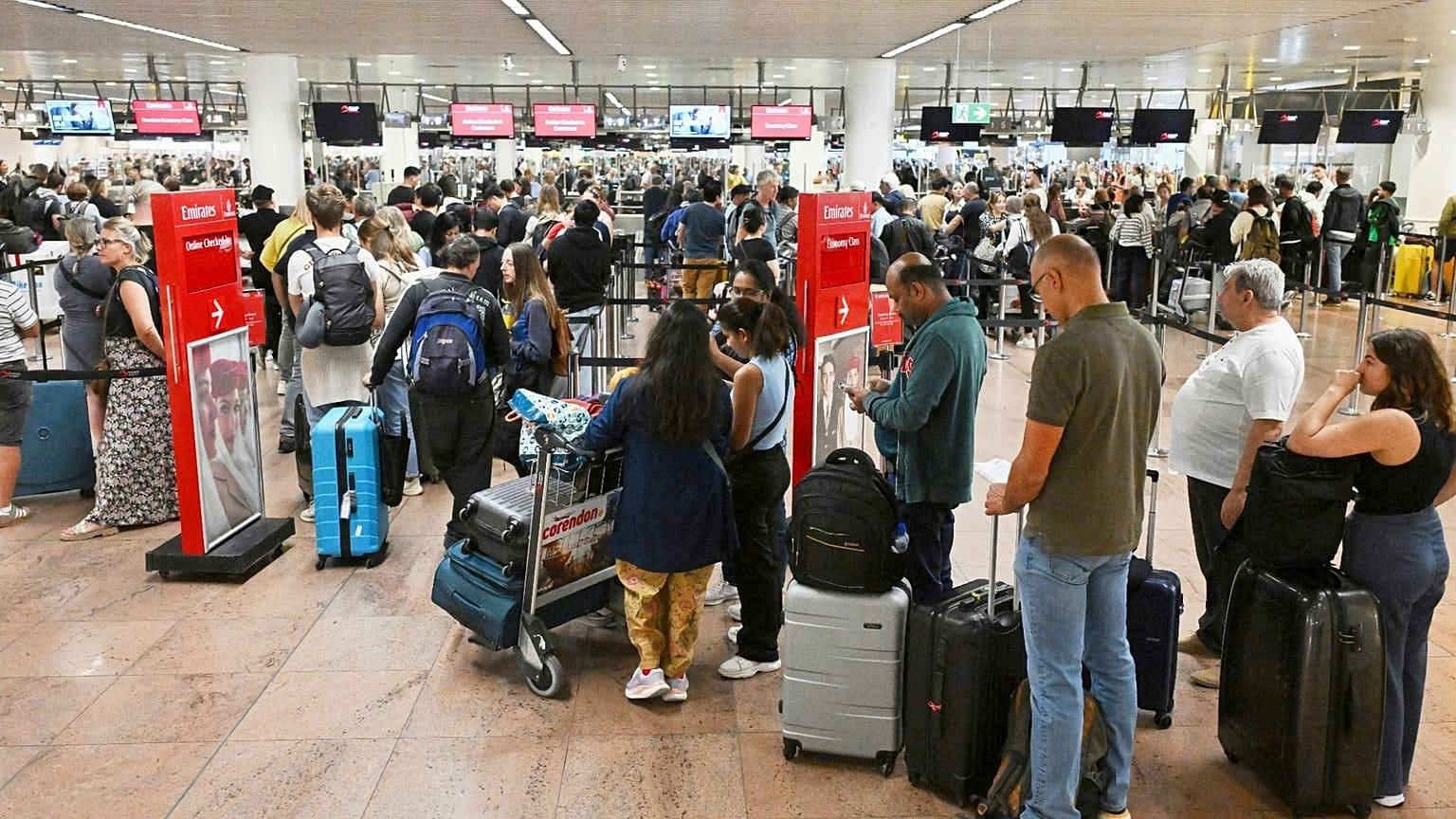AeroGenie — Ihr intelligenter Copilot.
Trends
Categories
Check-In Systems Fail at Heathrow and Brussels Airports Amid Europe-Wide Cyberattack

Check-In Systems Fail at Heathrow and Brussels Airports Amid Europe-Wide Cyberattack
Widespread Disruption at Major Airports
On the evening of September 20, a cyberattack severely disrupted check-in and boarding systems at several major European airports, including Heathrow, Brussels, and Berlin. The attack exposed significant vulnerabilities within the digital infrastructure that underpins modern air travel, resulting in extensive delays and flight cancellations. Investigations traced the source of the disruption to Muse, a passenger processing system developed by Collins Aerospace, a subsidiary of the US defense and aviation conglomerate RTX.
Muse: Central to Airport Operations
Muse functions as a shared-use passenger processing platform, facilitating electronic check-in, baggage tagging, and boarding pass validation across dozens of airports worldwide. Unlike traditional systems where individual airlines operated dedicated counters and kiosks, Muse enables multiple airlines to share desks and gates, dynamically allocating resources according to demand. This model has been praised for enhancing operational efficiency and reducing costs, allowing airports to optimize space and staffing while improving coordination with government security agencies.
At major hubs such as Heathrow, Muse integrates passenger information, baggage details, and security protocols into a unified digital framework. This integration allows airlines to adjust resource allocation swiftly, assigning additional desks to fully booked flights and scaling back for less busy ones. Over time, Muse has become deeply embedded in daily airport operations, positioning Collins Aerospace as a critical supplier to both airlines and national aviation authorities.
The Risks of Deep Integration
The cyberattack on September 20 underscored the risks associated with such extensive reliance on a single system. When Muse was taken offline, airlines across three countries simultaneously lost the ability to process passengers electronically. Airport staff were compelled to revert to manual procedures, including handwritten baggage tags and phone-based boarding lists, reminiscent of a pre-digital era. Despite efforts to implement manual check-in operations, the disruption led to unavoidable delays and cancellations.
This incident echoes previous vulnerabilities in aviation IT systems. Notably, a global IT failure last year, triggered by a faulty update from cybersecurity firm CrowdStrike, grounded flights across the United States, highlighting the fragility of aviation infrastructure dependent on a limited number of major providers.
Collins Aerospace and the Cybersecurity Imperative
Collins Aerospace, headquartered in North Carolina and a division of RTX (formerly Raytheon Technologies), is a prominent player in commercial aviation and airport systems. RTX reported revenues exceeding $67 billion in 2024, with Collins Aerospace contributing a substantial portion. While the company has emphasized its commitment to reliability and innovation, the recent cyberattack has intensified scrutiny of its cybersecurity measures. RTX confirmed that the Muse outage resulted from a "cyber-related disruption" and stated that it is collaborating with investigators to enhance its security protocols.
Renewed Calls for Enhanced Aviation Cybersecurity
The disruption has reignited urgent calls from industry experts for strengthened cybersecurity across the aviation sector. As airports and airlines increasingly depend on shared digital infrastructure, safeguarding these systems against cyber threats has become paramount. The events at Heathrow, Brussels, and Berlin serve as a stark reminder that the pursuit of operational efficiency must be balanced with robust security measures to ensure the resilience and safety of future air travel.

Emirates Unveils Cabin Design for New Boeing 777X

Eighteen Years On, the Airbus A380 Remains Central to a $34 Billion Airline

How a boom in luxury airline seats is slowing down jet deliveries

Navitaire Outage Attributed to Planned Maintenance

DigiYatra Debuts Outside Aviation at India AI Impact Summit

Vietnam Orders Strengthen Boeing’s Commercial Outlook

Airbus Signals Uncertainty Over Future A400M Orders

JobsOhio Awards $2 Million Grant to Hartzell Propeller for Innovation Center

Collins Aerospace Tests Sidekick Autonomy Software on YFQ-42A for U.S. Air Force CCA Program

How the Airbus A350-1000 Compares to the Boeing 777
